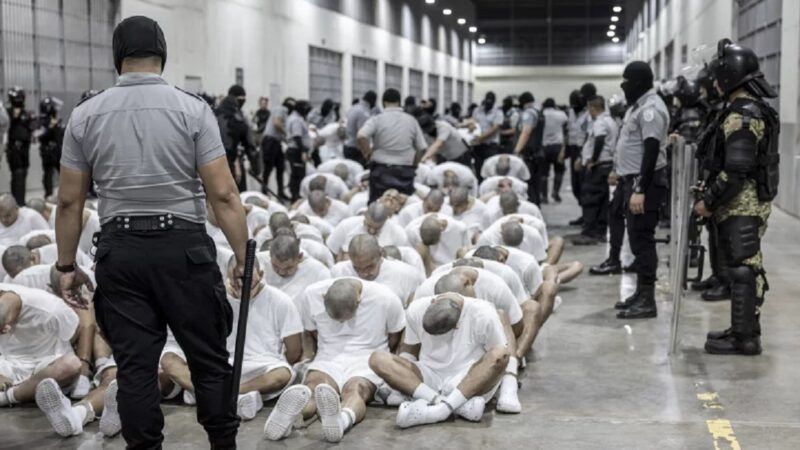Colorado Federal District Court Issues Additional Alien Enemies Act Ruling Against Trump
The court instituted a preliminary injunction against the Administration's use of the Act to deport Venezuelans.


Earlier today, federal District Judge Charlotte Sweeney of the District of Colorado issued a ruling against the Trump Administration in an Alien Enemies Act (AEA) case. Trump has been trying to use the Alien Enemies Act of 1798 as a tool for deporting Venezuelan migrants with virtually no due process. But the Act can only be used to detain and deport immigrants in the event of a declared war, or an "invasion" or "predatory incursion" perpetrated by a "foreign nation or government." In today's decision, Judge Sweeney built on her own earlier ruling imposing a temporary restraining order (TRO) against AEA deportations in her district, and also a recent AEA ruling by a federal district court in Texas. Her new decision replaces the TRO with a longer-lasting preliminary injunction.
Like those other rulings, Judge Sweeney's most recent opinion concludes that none of the requirements for invocation of the AEA has been met. The activities of the Tren de Aragua drug gang (cited by Trump as justification for using the AEA) don't qualify as an "invasion" or a "predatory incursion," and TdA is pretty obviously not a "nation or government" (Judge Sweeney is the sole federal judge to have addressed this latter issue, so far). Moreover, US intelligence agencies have concluded that TdA probably isn't even acting at the direction of the Venezuelan government. It is a private criminal organization.
I have defended the view that "invasion" requires a military attack, in greater detail in my previous writings on the meaning of the term in the AEA and the Constitution. The two meanings are necessarily intertwined, as several federal courts have now recognized.
Judge Sweeney's ruling reaches the right result, and is generally well-reasoned. But there is one regrettable aspect of her analysis, adapted from a recent ruling by Judge Fernando Rodriguez of the Southern District of Texas. Like him, she concludes that the meaning of "invasion" is not an unreviewable "political question," but also suggests that the factual determination of whether an "invasion" exists is. This is irrelevant to the current state of AEA litigation because Trump has not - so far - alleged that a foreign government is invading the US in the sense of launching a military attack. But he could potentially make such an assertion, and I would not put it past this administration to make bogus claims of that sort.
For that reason, among others, my reservations about Judge Rodriguez's reasoning on this point also apply to the Colorado ruling:
Making determinations about relevant facts is a standard function of the judiciary. If the law says the government is allowed to do X whenever Y occurs, courts must make a determination on whether Y has actually happened or not. Otherwise, the government could do X anytime it wants simply by asserting Y has happened, even if the claim is false. This is especially dangerous in case of emergency wartime powers that severely curtail civil liberties, like those authorized by the AEA (detention and deportation with little due process, even for legal immigrants)….
[U]nder the Constitution, a state of "invasion" allows state governments to "engage in war" in response and the federal government to suspend the writ of habeas corpus (thereby empowering it to detain people - including US citizens - without due process). Such sweeping authority cannot simply be left to the unreviewable discretion of one person. That's the kind of arbitrary royal prerogative the Founders sought to prevent.
It may be reasonable to defer to the executive on factual issues when the evidence is close, and ambiguous, and the government is making use of some kind of superior expertise. But not when the assertion that an "invasion" exists is pretty obviously false, and pretextual.
Despite this one flaw, the new Colorado ruling is yet another indication of a growing consensus among federal judges that Trump has invoked AEA illegally because "invasion" and "predatory incursion" are forms of organized armed attack. Illegal migration and drug smuggling don't qualify. Both lower-court judges and the Supreme Court have also uniformly rejected the notion that invocation of the AEA isn't subject to judicial review.
The legal battle over the AEA will continue, and this ruling, like other lower-court decisions going against the administration, is likely to be appealed. But, so far, Trump is has suffered an almost unbroken series of well-deserved losses in AEA litigation.
The administration's only notable win to date was on the procedural issue of where AEA detainees must file their claims. And that victory has been undercut by the ongoing willingness of judges' to rule against him on the merits, and certify class actions. For reasons I summarized here and here, class action certification is crucial to ensuring that poor migrants and those with limited English proficiency are able to secure meaningful judicial protection for their rights.
